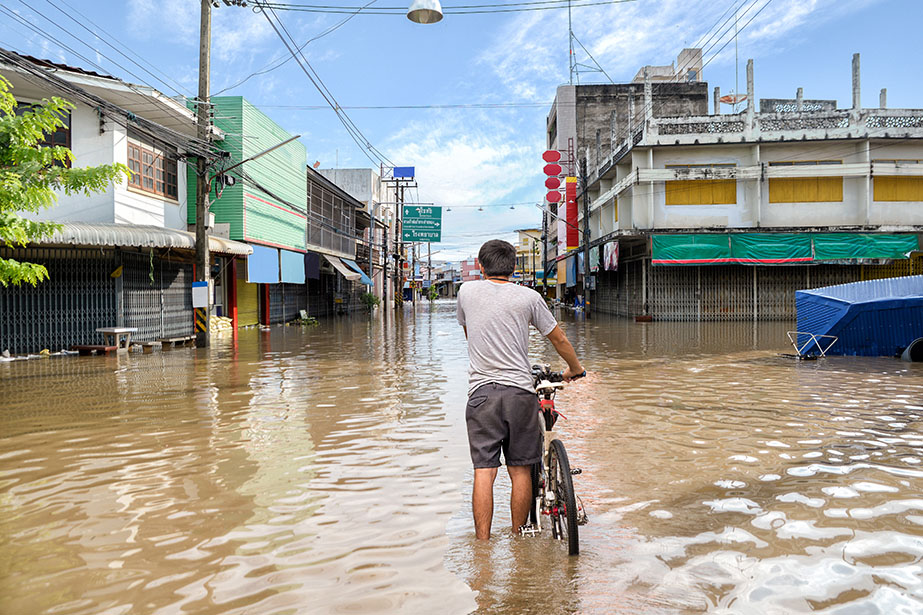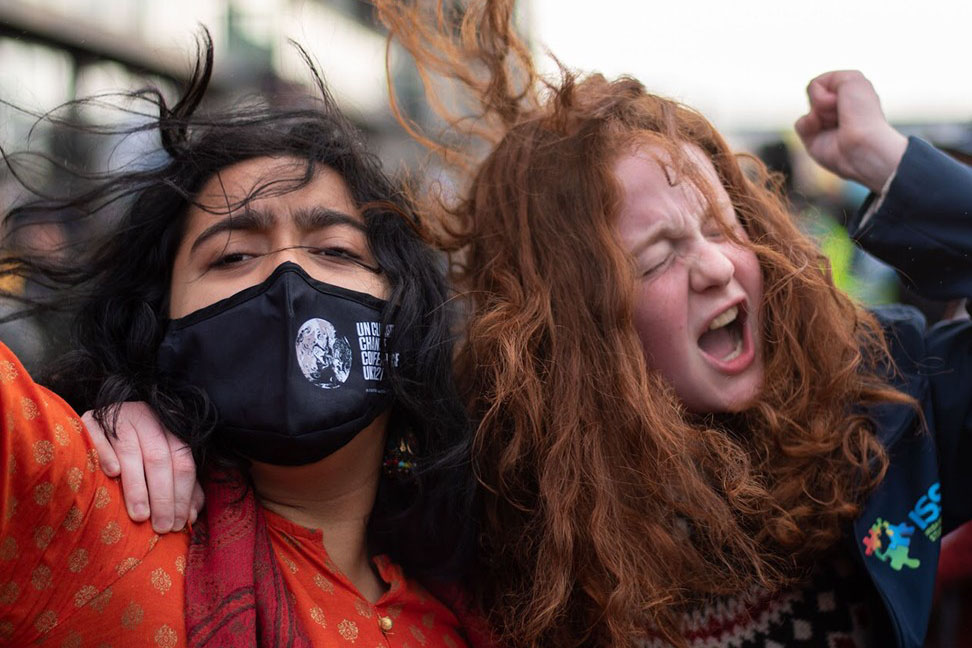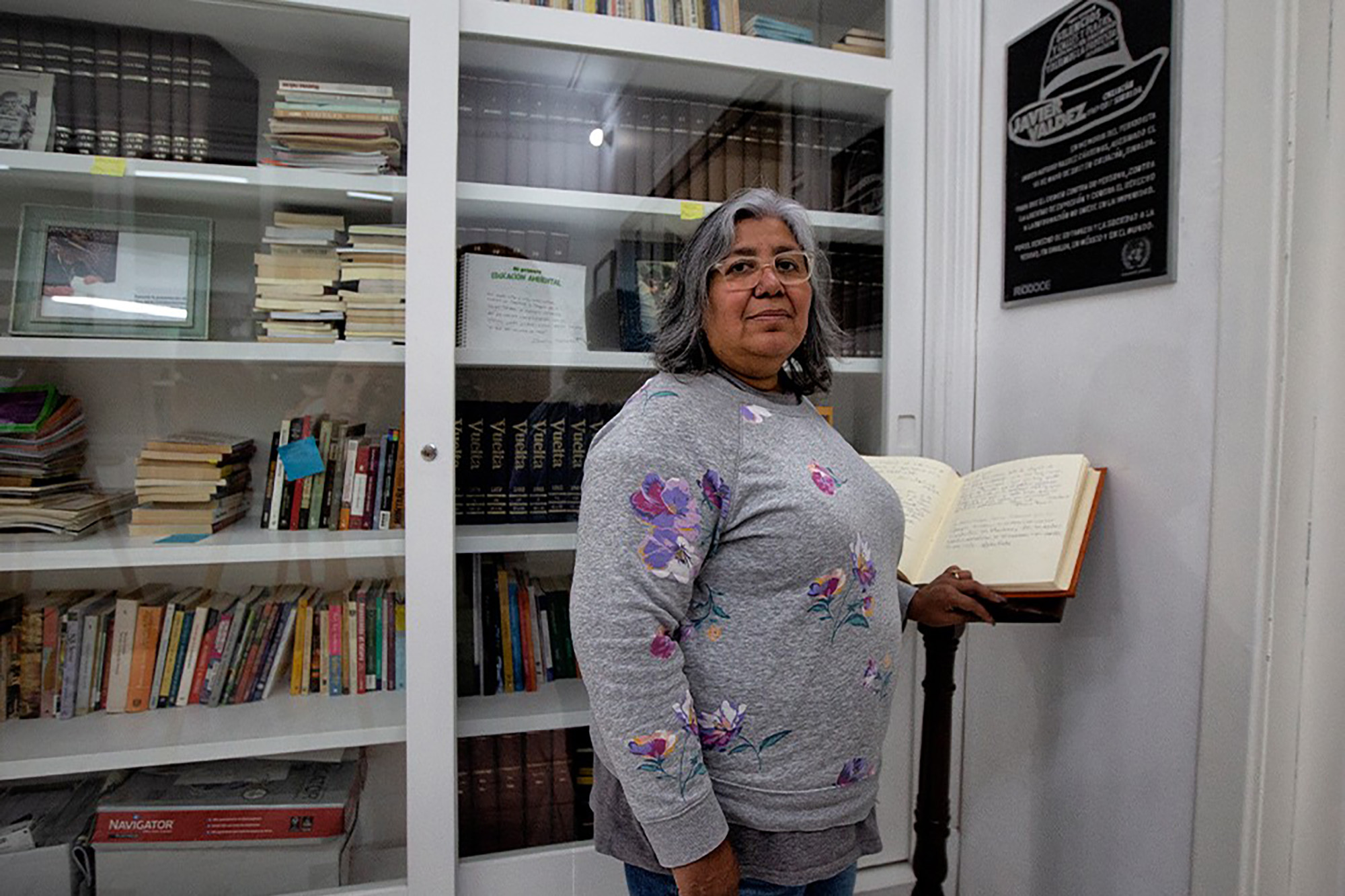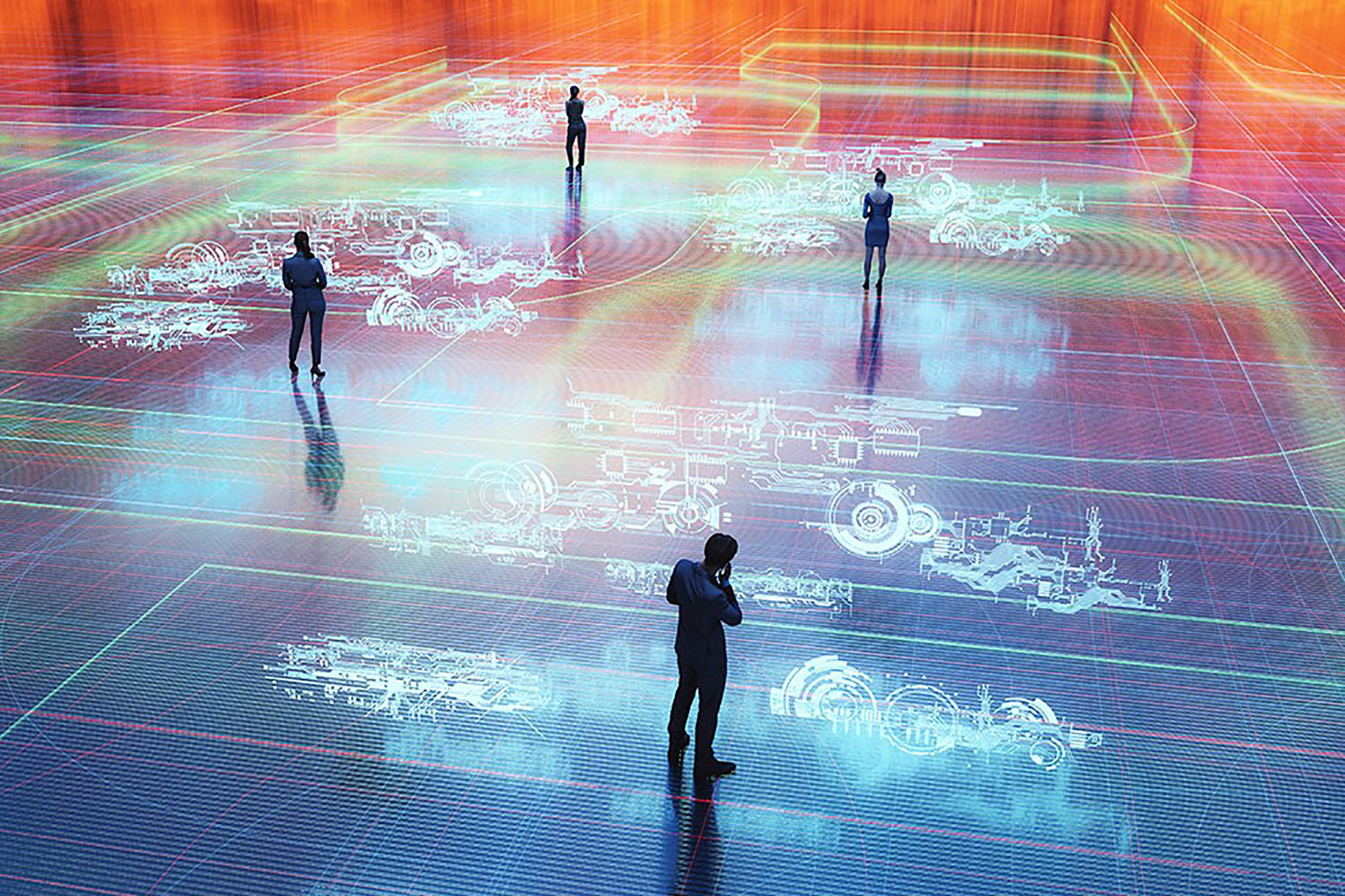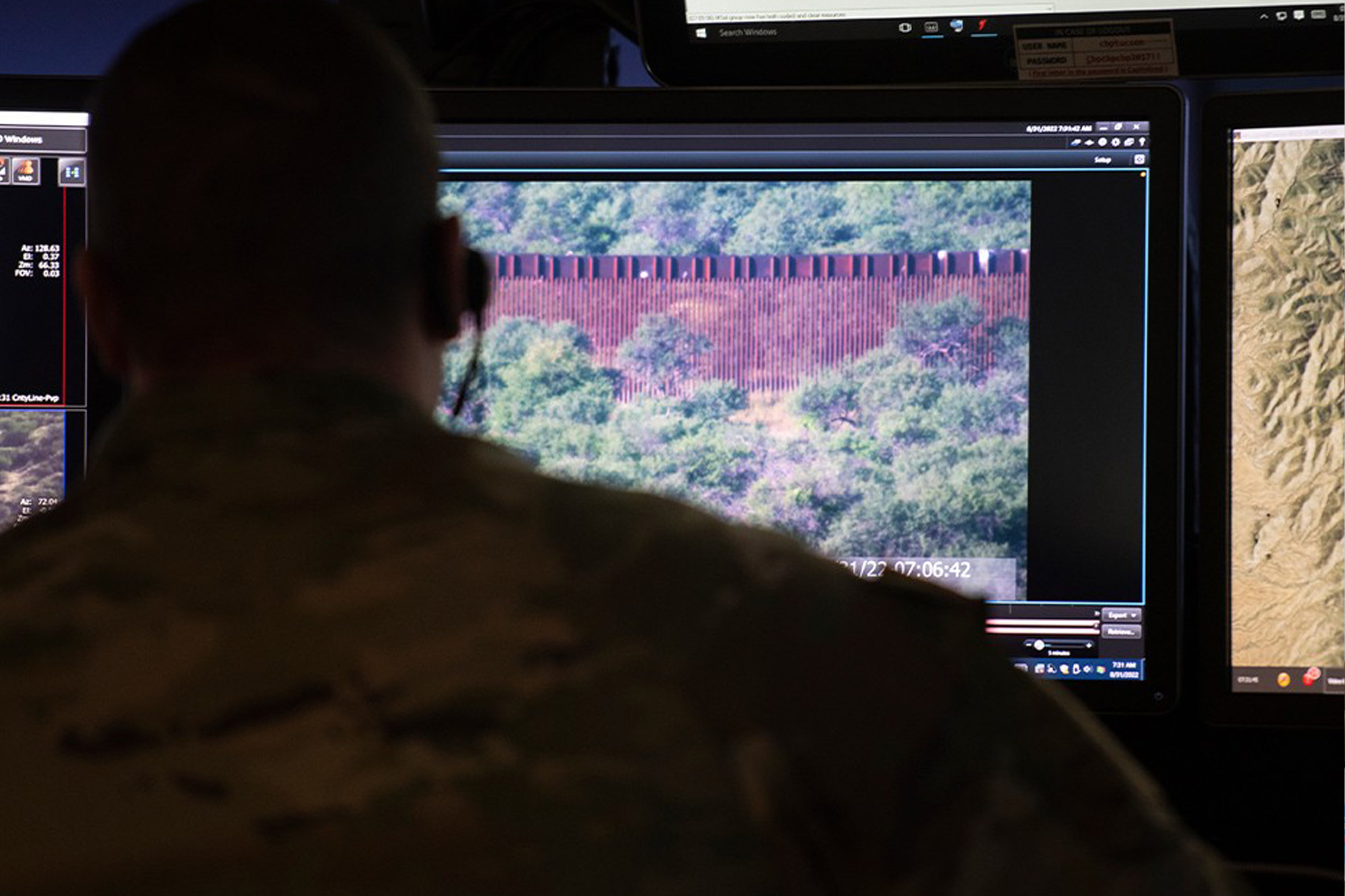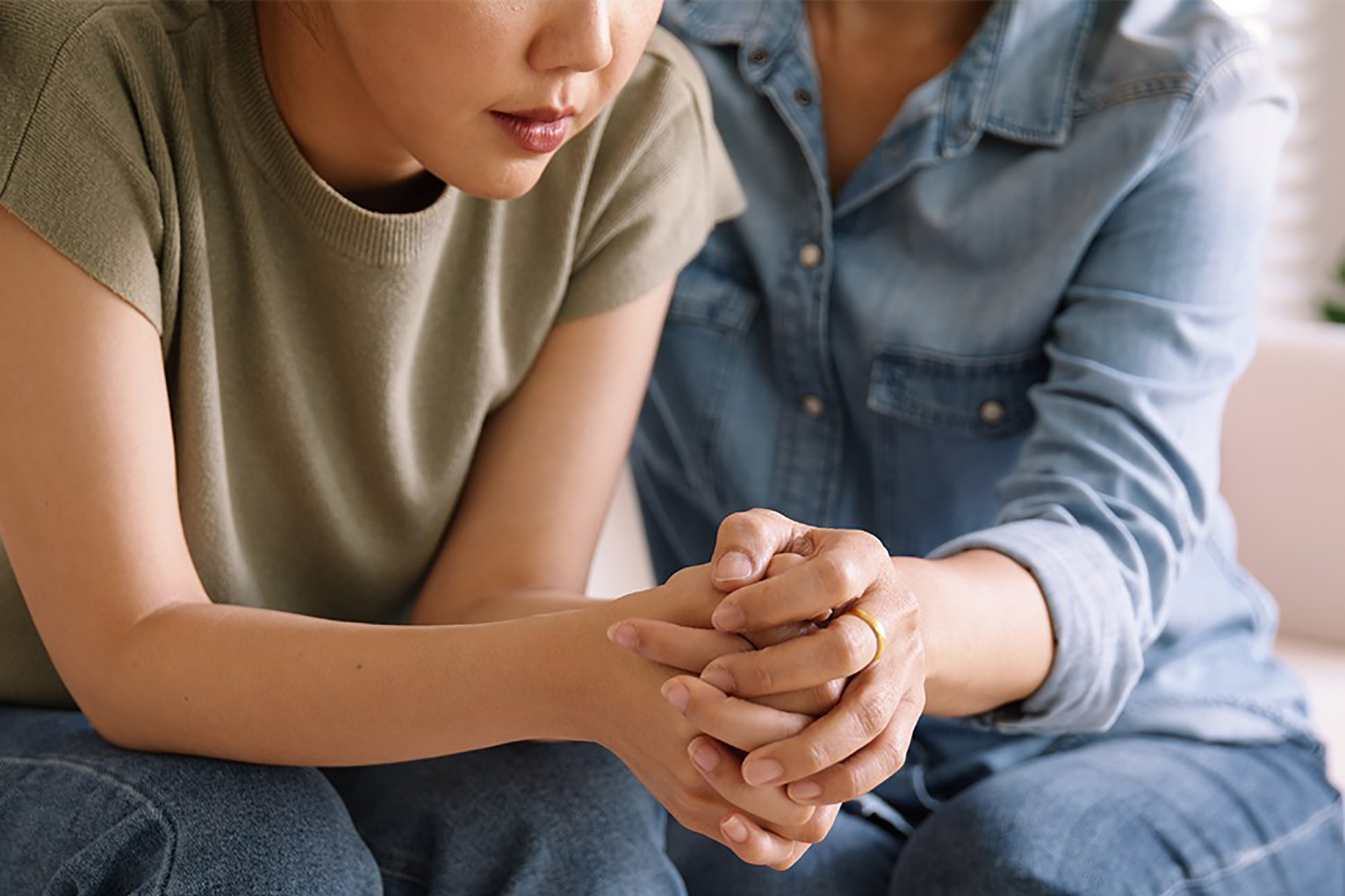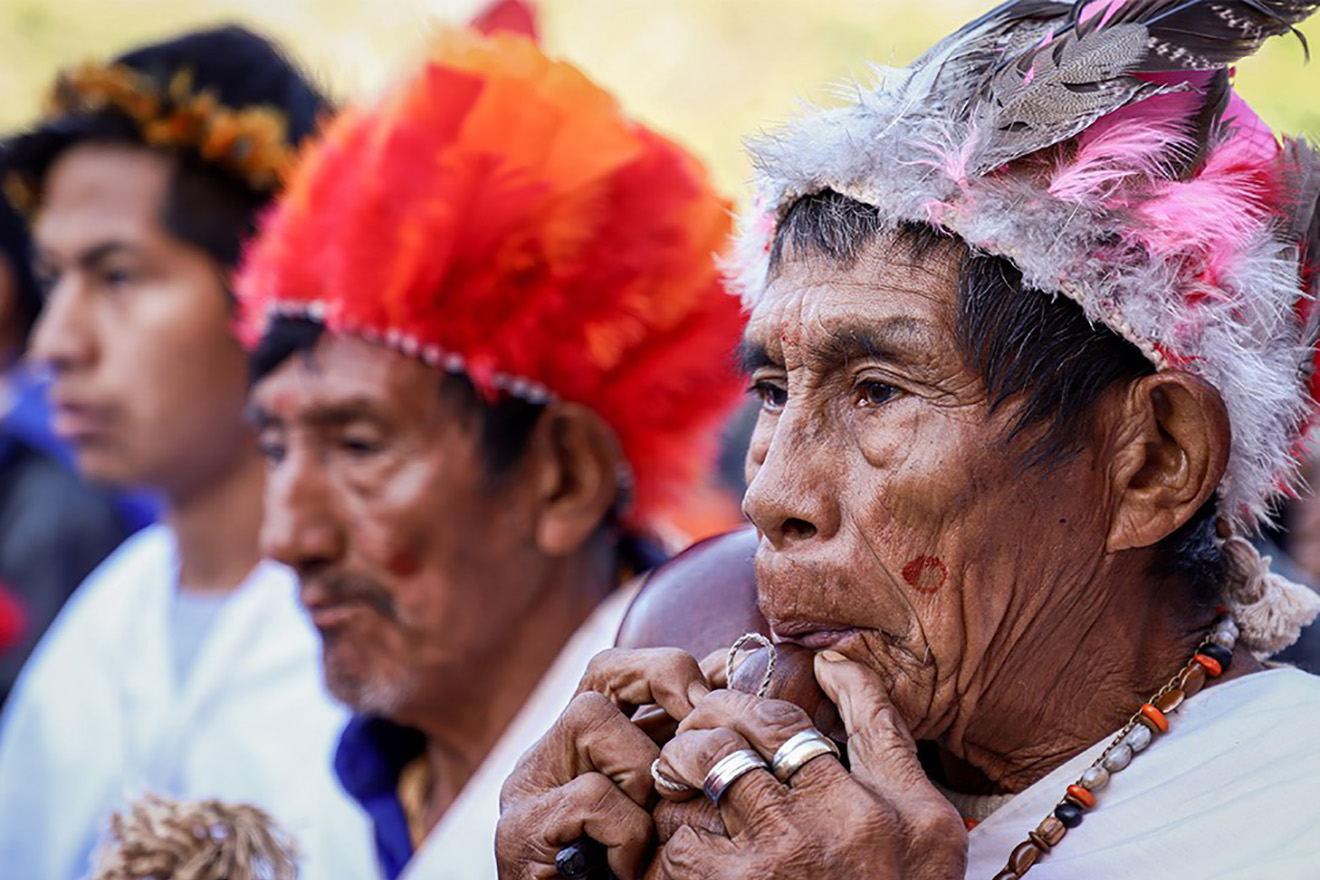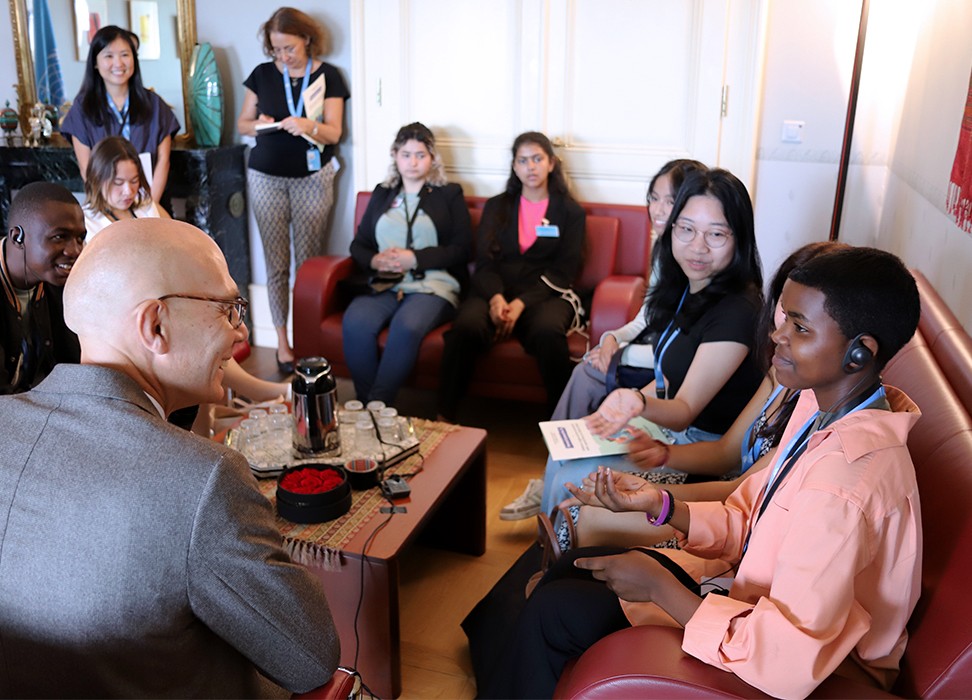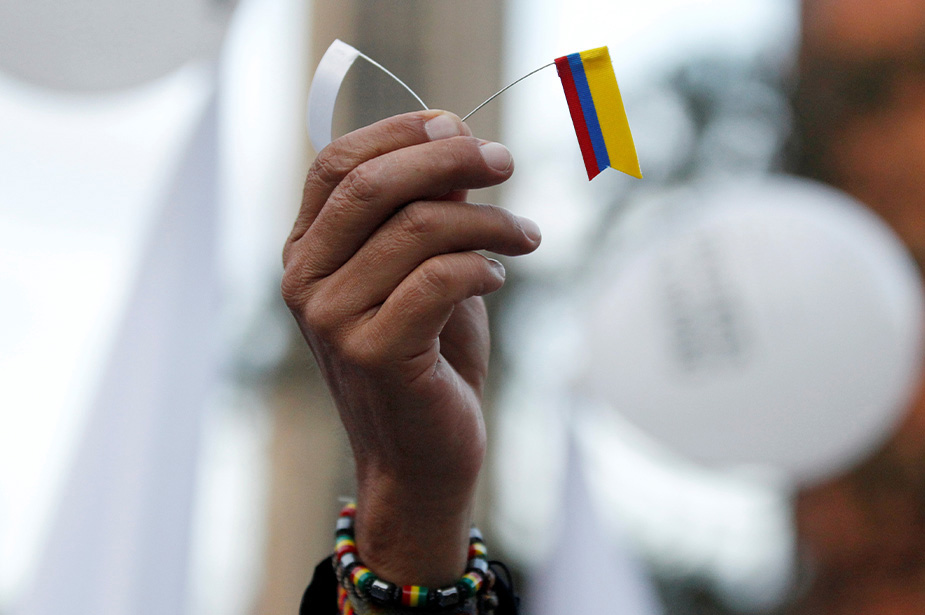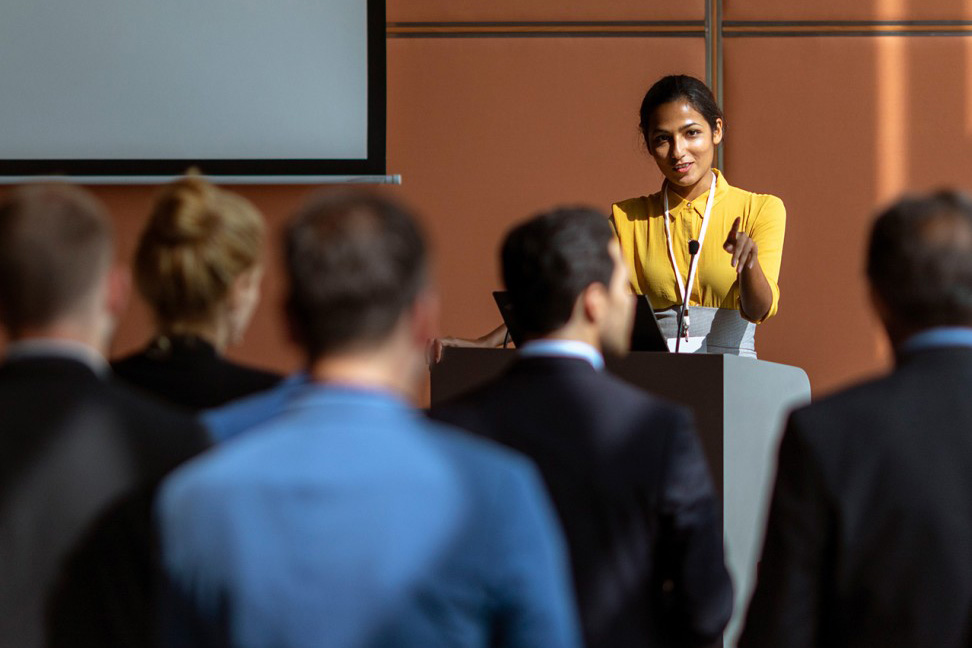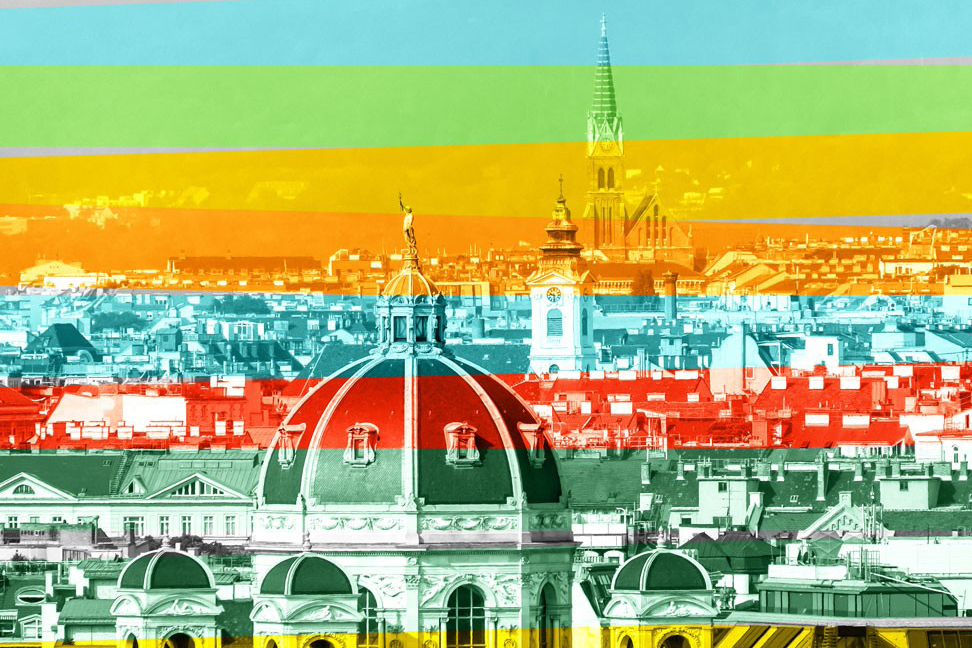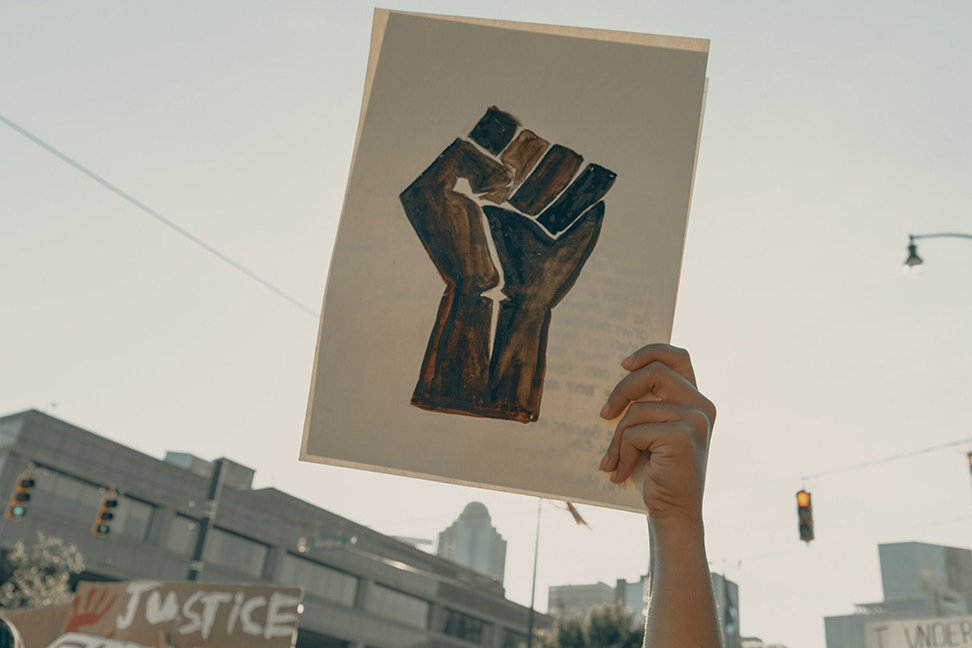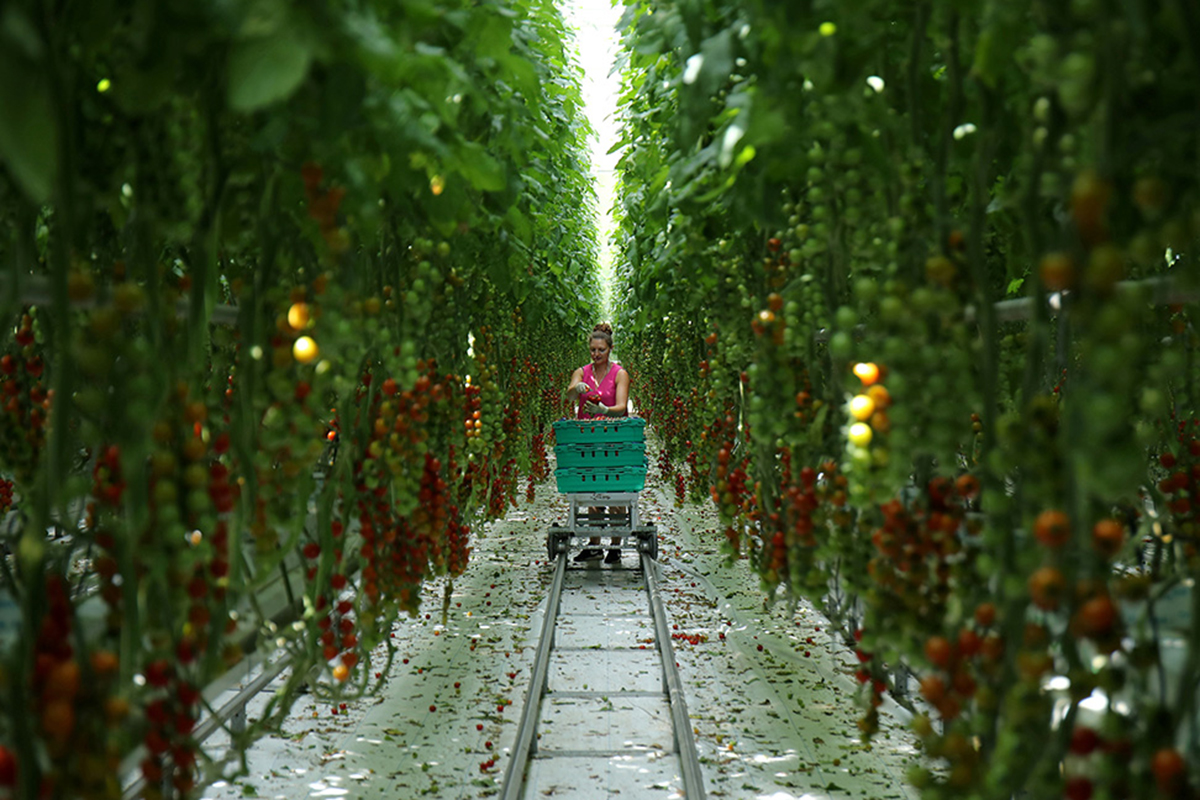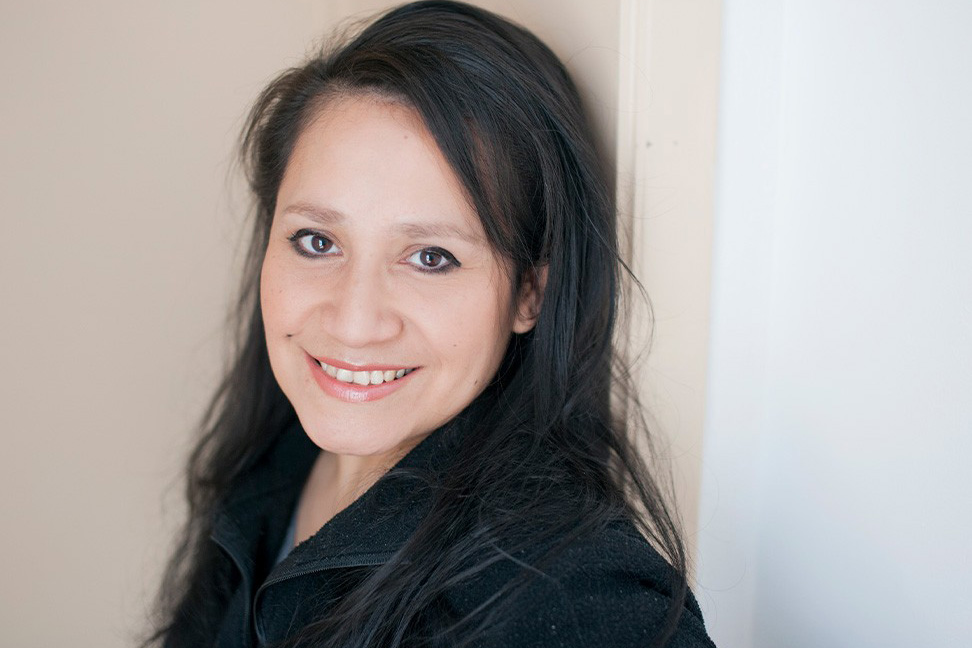The link between humans and the environment must be preserved, for the benefit of safeguarding our planet for present and future generations to come.
OHCHR
A growing generation of young human rights defenders are organizing themselves to hold governments and businesses accountable on climate change.
For years, journalists in Mexico have been assassinated with impunity. Underpaid and overstretched, they usually work solo, often online or on social media only, without a safety net to protect them if they are victims of threats, attacks, or murder. Following the murder of her husband, Javier Arturo Valdez Cárdenas, journalist and human rights defender Griselda Triana amplifies the voices of those journalists whose own voices remain unheard. Griselda is a member of Sinaloa’s Consultative Council of the Institute for the Protection of Human Rights Defenders and Journalists, she sits on the jury of the Breach-Valdez Prize for Journalism and Human Rights and travels internationally to speak about freedom of the press.
New digital technologies have transformed the way people live in so many ways by creating economic growth, job creation and empowering human rights activism. At the same time, the dark side of these very same innovations can pose severe risks to people’s rights including by infringing on privacy, through the spread of hate speech, misinformation, the undermining of the democratic processes, and the increase in online violence. This is why UN Human Rights has created the Business and Human Rights in Technology Project, as a way to address these issues by providing an authoritative roadmap for applying the UN Guiding Principles on Business and Human Rights to the development and use of digital technologies.
Technologies can be used for good by providing migrants with the ability to stay connected to their families and communities and to make complaints about chronic abuses. However, a new study from OHCHR reveals technologies can also harm human rights during the migration processes, with no real safeguards put in place. The report exposes multiple harms linked to the use of digital technologies in the management of borders, such as biometric recognition tools and massive interoperable databases, often linking information across government sectors and deployed in insecure ways. Emotion detection systems are also being used to justify migration decisions, leading to biased and discriminatory practices.
A healthy environment is a basic human right, advocates Francisco Vera, the 13-year-old Colombian Climate Human Rights defender.
In Paraguay, indigenous peoples lack access to basic needs such as adequate food, education, housing, justice and health, which puts at risk the achievement of most national and international commitments, including the Sustainable Development Goals. UN Human Rights supports Paraguay’s efforts to adopt a social protection system that integrates human rights, alleviates structural inequalities and generates sustainable growth. With funding from the Surge Initiative, the Office is working with the government, civil society, human rights institutions and academia, providing technical assistance and analytical data, and enhancing capacity to build institutional and financial capacity to ensure social security for all.
Children’s rights under the Convention on the Rights of the Child apply to environmental protection, and confirms that children have a right to a clean, healthy and sustainable environment. More than 16,000 children in 121 countries took part in the General Comment No. 26 which emphasizes the urgent need to address the adverse effects of environmental degradation, with a special focus on climate change, on the enjoyment of children’s rights, and clarifies the obligations of States to address environmental harm and climate change. Children are at the forefront of a wave of ground-breaking litigation around the world that has the potential not only to ensure greater accountability on the part of governments and business, but also to trigger fundamental shifts in approach.
Colombia’s conflict has torn the souls of Colombians apart for almost 70 years. The only road we have left is reconciliation.
According to UN Human Rights, women face unprecedented levels of targeted violence, which takes many forms, including attacks on women in politics and women human rights defenders.
June marks the 30th anniversary of the Vienna Declaration and Programme of Action, a landmark document that paved the way for human rights breakthroughs. To celebrate the occasion, UN Human Rights held a high-level event in Vienna to reflect on progress and revitalize a worldwide consensus on human rights. Thirty years after the Vienna Declaration, the world faces multiple crises, and the commitment to human rights is more important than ever. The two-day event is a key milestone in a year-long initiative to celebrate the 75th anniversary of the Universal Declaration of Human Rights.
Unprecedented worldwide protests in 2020 following the murder of George Floyd in the United States, marked a watershed moment in the struggle against police brutality and systemic racism. A year later, UN Human Rights issued the Agenda towards transformative change for racial justice and equality that offered a way to reverse cultures of denial, dismantle systemic racism and accelerate action. UN Human Rights continues to urge States to adopt a systemic approach to combatting racial discrimination through the adoption of whole-of-government and whole-of-society responses.
According to UN Human Rights, a human rights economy places people and the planet at the heart of economic policies, investment, decisions consumer choices, and business models, with the goal of enhancing the enjoyment of human rights for all. To ensure human rights is at the core of sustainable development, UN Human Rights created the Surge Initiative in response to rising inequalities, the slow implementation of the SDGs and increasing social unrest. The mission is to step up engagement on economic, social, and cultural rights and strengthen the link between human rights and economics.
It 1982, the military regime surrounded the village of Nebaj, where Izabel Lopez Raymundo lived in Guatemala. They set fire to the houses; shot a man; the son trying to protect the family was also shot. The mother, with a baby on her back, was shot close range. The bullet killed the mother but lodged in the baby’s body. A soldier took the baby and placed her in an orphanage. The baby, now grown, is Lopez. She has a scar on her chest where the bullet went in. Lopez told her story during the recent session of the OHCHR Committee on Enforced Disappearances (CED).

